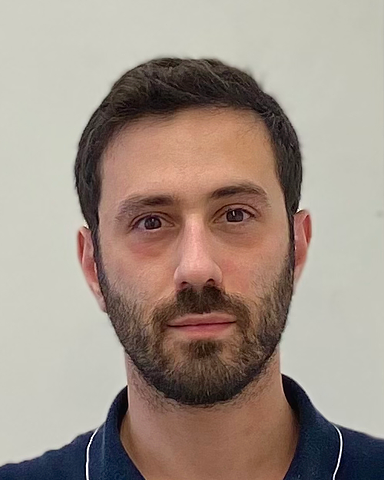Luca Di Stefano
Univ.Ass. / PhD
Research Areas
- Agent Based Modelling, Reactive synthesis, Formal Methods, model checking, Software Verification

About
My research focuses on the specification of complex collective systems (such as multi-agent systems, robot swarms, stigmergies, and so on) and their analysis via state-of-the-art verification techniques. I am also working on reactive synthesis and online formal techniques, such as runtime monitoring.
Thesis supervision. I am open to supervise BSc and MSc theses at TU Wien. For bureaucratic reasons, the main advisor would be professor Ezio Bartocci. Some proposals are already available on TISS (look up my last name). I am also open to discuss project proposals that overlap with my interests.
Interests. Software verification, Model checking, Multi-agent systems, Formal semantics, Process calculi, Reactive Synthesis, Static analysis
Role
-
PostDoc Researcher
Cyber-Physical Systems, E191-01
Courses
2025W
- Operating Systems / 191.002 / VU
2026S
- GPU Architectures and Computing / 182.731 / VU
- Scientific Research and Writing / 193.052 / SE
Publications
- Execution and Monitoring of HOA Automata with HOAX / Di Stefano, L. (2025). Execution and Monitoring of HOA Automata with HOAX. In Runtime Verification : 25th International Conference, RV 2025, Graz, Austria, September 15–19, 2025, Proceedings (pp. 44–53). Springer, Cham. https://doi.org/10.1007/978-3-032-05435-7_3
- Full LTL Synthesis over Infinite-State Arenas / Azzopardi, S., Di Stefano, L., Piterman, N., & Schneider, G. (2025). Full LTL Synthesis over Infinite-State Arenas. In R. Piskac & Z. Rakamaric (Eds.), Computer Aided Verification : 37th International Conference, CAV 2025, Zagreb, Croatia, July 23-25, 2025, Proceedings, Part IV (pp. 274–297). Springer. https://doi.org/10.1007/978-3-031-98685-7_13
- Emerging Synchrony in Applauding Audiences: Formal Analysis and Specification / Di Stefano, L., & Inverso, O. (2024). Emerging Synchrony in Applauding Audiences: Formal Analysis and Specification. In Leveraging Applications of Formal Methods, Verification and Validation. REoCAS Colloquium in Honor of Rocco De Nicola (pp. 253–270). https://doi.org/10.1007/978-3-031-73709-1_16
- Attributed Point-to-Point Communication in R-CHECK / Abd Alrahman, Y., Azzopardi, S., Di Stefano, L., & Piterman, N. (2024). Attributed Point-to-Point Communication in R-CHECK. In Leveraging Applications of Formal Methods, Verification and Validation. Rigorous Engineering of Collective Adaptive Systems (pp. 333–350). Springer. https://doi.org/10.1007/978-3-031-75107-3_20
